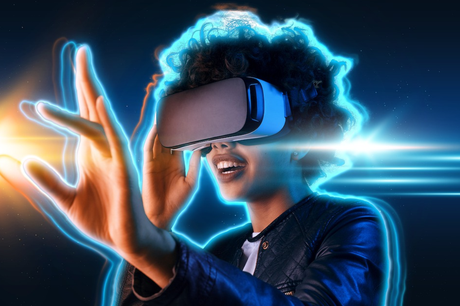The Decentralized Economy is an emerging economic model that enables peer-to-peer exchange of value and goods without the need for central intermediaries.
Powered by blockchain technology, the Decentralized Economy offers a new way of conducting business that is more efficient, transparent, and secure.
In the Decentralized Economy, there is no need for central authorities or intermediaries to facilitate transactions. Instead, blockchain technology enables direct peer-to-peer interactions between buyers and sellers.
This results in a more efficient and transparent marketplaces, as well as reduced costs for businesses and consumers.
The Decentralized Economy is still in its early stages of development. But it is clear that blockchain technology has the potential to fundamentally disrupt a wide range of industries, from retail and finance to healthcare and education.
With its ability to facilitate borderless transactions, create trust between strangers, and reduce transaction costs, blockchain will play a key role in shaping this new economy.
And as more businesses begin to explore the use of blockchain, we will see the Decentralized Economy continue to grow and mature.

The metaverse is a term coined by Neal Stephenson in his science fiction novel Snow Crash to describe a user-created virtual world that exists on the internet.
In recent years, the term has been used more broadly to refer to any online virtual world, including those created by video game developers.
The metaverse is often compared to the real world, as it consists of many different planets and moons, each of which represents a distinct form of human expression.
For example, some planets may be occupied by commoners who live in simple houses made from wood, while others are home to wealthy individuals who reside in large manors surrounded by lush gardens.
The metaverse is also linked to the concept of the blockchain, which refers to a form of technology that records interactions between users without relying on a central authority.
This can be accomplished through a distributed ledger that is publicly available to anyone who wishes to participate in transactions.
In recent years, many companies have been working to create blockchain-based virtual worlds, as they see this technology as a way of increasing transparency and security in online transactions.
Some projects, such as Decentraland, focus on the creation of virtual real estate that can be bought and sold using cryptocurrencies like Bitcoin.
Other initiatives, including CryptoKitties and Etheremon, are centered around digital collectables that can be traded between users without having to go through a centralised exchange.
Blockchain is the key technology for the metaverse because it enables trustless, decentralized exchange of value and ownership.
In a world where digital assets are becoming increasingly important, blockchain provides a way to ensure that these assets can be securely exchanged without the need for a central authority.
This makes it an ideal platform for developing a metaverse, which is a virtual world that is built on decentralized infrastructure.
The metaverse is often described as a "virtual world" or "cyberspace". It is a shared, online space where users can interact with each other and with digital content.
The concept of the metaverse has been popularized by science fiction works such as Neal Stephenson's novel Snow Crash and the Matrix Trilogy.
However, while these works provide a compelling vision of what an advanced metaverse might look like, they are still very much in the realm of science fiction.
The metaverse is a concept that has been gaining a lot of traction in recent years. Essentially, it is a virtual world that exists independently of any one platform or device. It is a shared space where people can interact with each other and with digital objects in a variety of ways.
One of the key components of the metaverse is the ability to create and own digital assets. These can be anything from simple 3D models to complex virtual worlds.
The ownership and transfer of these assets is managed by a decentralized ledger, which is where blockchain comes in.
Blockchain provides a trustless and immutable record of all transactions that take place within the metaverse. This ensures that assets cannot be duplicated, stolen or otherwise compromised.
It also allows for the creation of smart contracts that can execute automatically when conditions are met.
So while blockchain is an important component of the metaverse, it may not always be necessary. In certain cases, a centralized database may be sufficient to track digital assets and execute trusted transactions.
However, in general, blockchain adds a lot of value and will likely play a key role in the development and evolution of the metaverse.
Do you need blockchain for building your own virtual world? The short answer is: yes, probably! While it may not be essential for every project, using this technology provides several benefits that can help to improve the user experience of digital assets and transactions.
There's been a lot of talk lately about the "Metaverse" and how it relates to Web 3.0. But what exactly is the Metaverse, and is it the same thing as Web 3.0?
The short answer is: no, they are not the same thing. The Metaverse is a concept that predates Web 3.0 by quite a few years, but the two share some important similarities. So let's take a moment to explore what these concepts are, and how they relate to one another.
The Metaverse is a term that was coined by Neal Stephenson in his 1992 science fiction novel "Snow Crash". In this book, he described it as a virtual reality that exists in a computer network, and is implemented as a collection of user-created simulations.

These simulations are designed to be shared by multiple users simultaneously, and allow people from all over the world to connect with each other in ways that were previously impossible.
While this was just science fiction at the time it was written, the idea of the Metaverse has been gaining traction in recent years.
With the advent of technologies like virtual reality and augmented reality, it's becoming increasingly easier to create simulations that feel realistic and immersive.
And as more and more people gain access to these technologies, the possibility of a Metaverse starts to become more real.
Web 3.0, on the other hand, is a term that was coined more recently, in 2004 by John Markoff. It refers to the next generation of the World Wide Web, which is being built on top of decentralized technologies like blockchain.
This new version of the web is designed to be more secure and efficient than its predecessor and to give users more control over their own data.
Quick LinksConclusion- The Role Of Blockchain In The Metaverse 2022
The blockchain is a transparent and incorruptible digital ledger of all cryptocurrency transactions. It is maintained by a network of computers connected to the internet that use cryptography to secure the system.
This technology has the potential to revolutionize many industries, including the real estate market. In the Metaverse, the blockchain will be used to record land ownership and other important data.
Property deeds and other documents will be stored on the blockchain, making them tamper-proof and easily accessible by anyone with permission to view them.
This will create a more efficient and secure real estate market in which buyers and sellers can trust that their information is accurate and protected from fraud.
